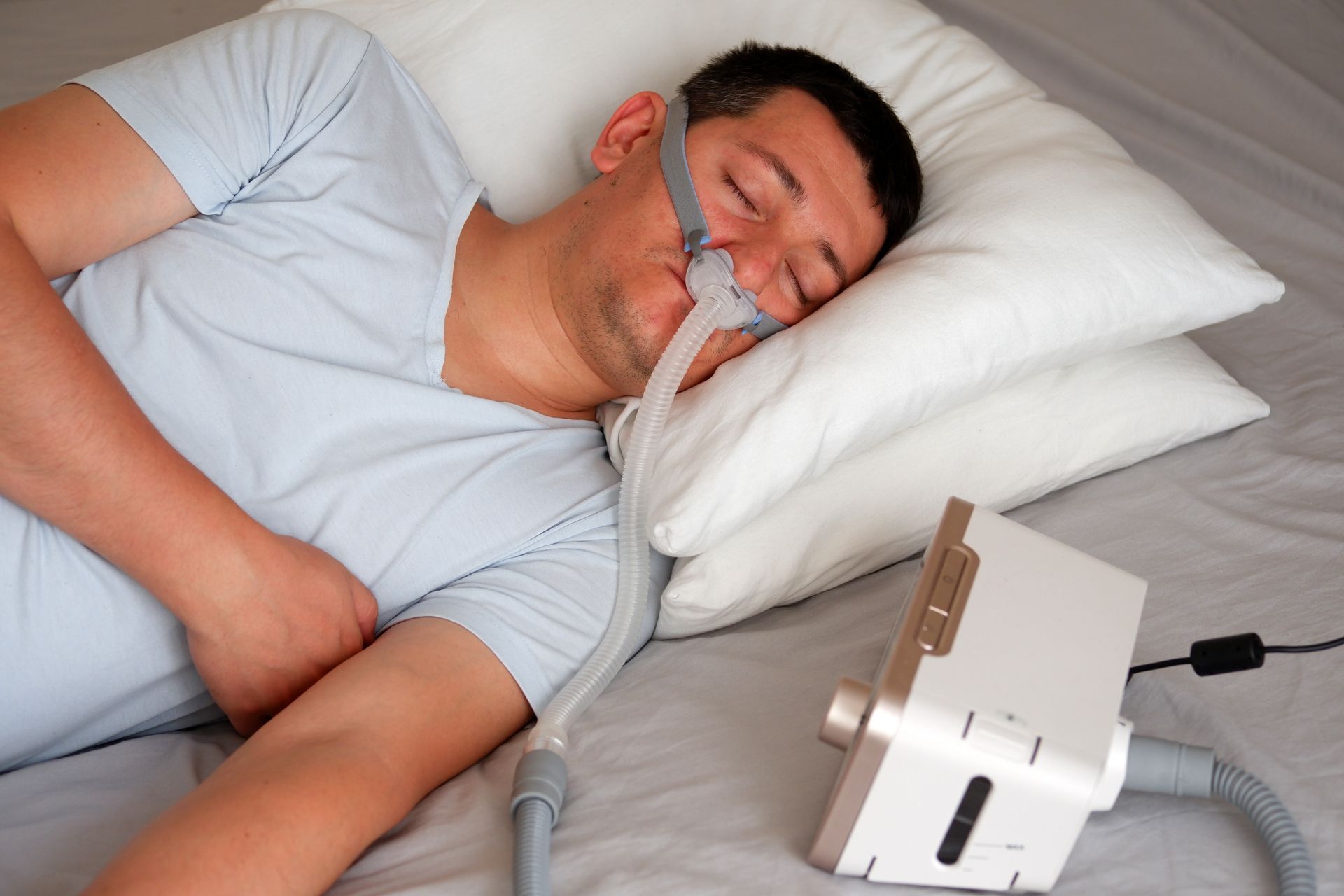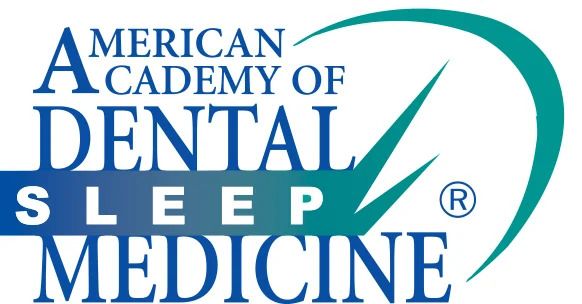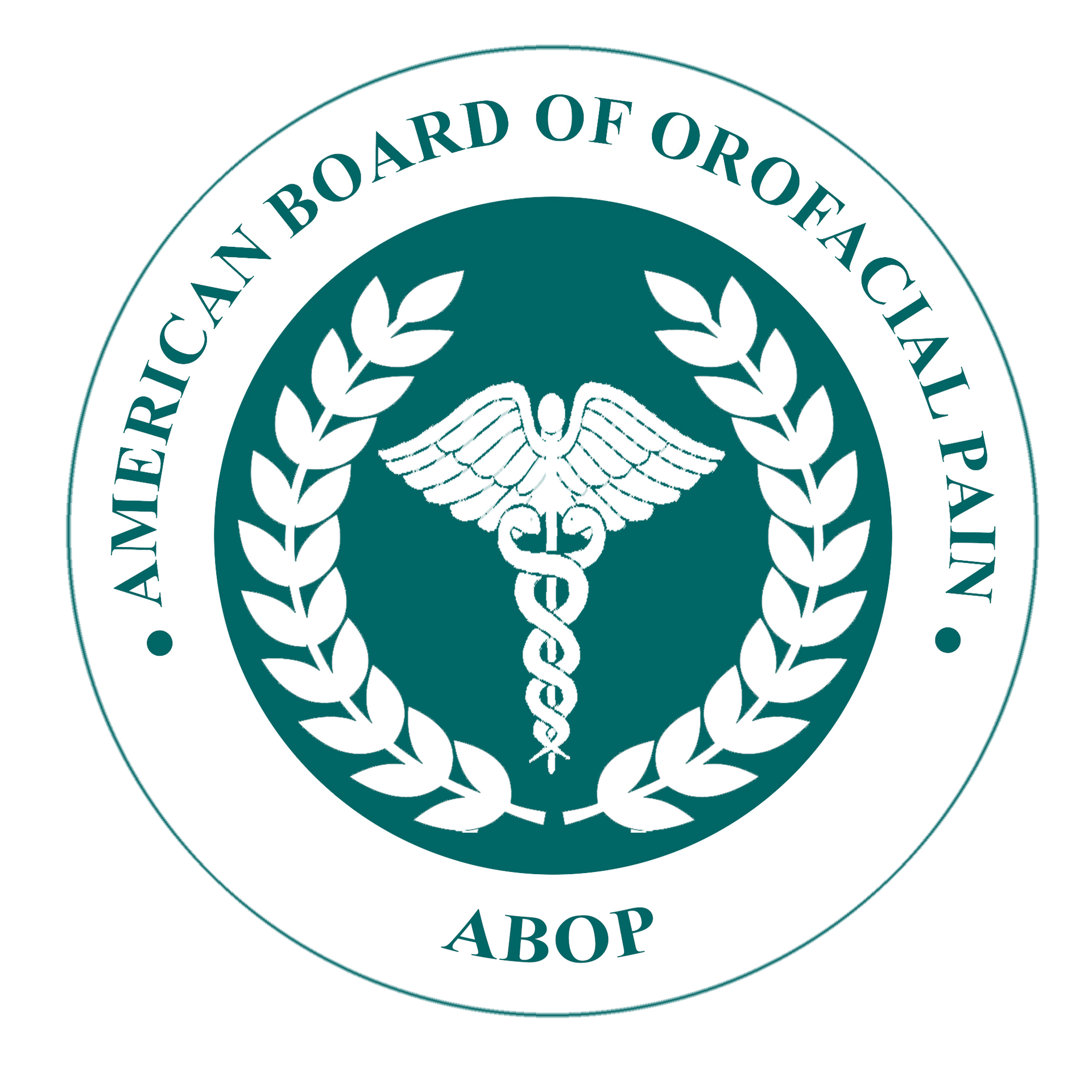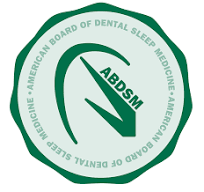Symptoms Of Sleep Apnea
Are you having trouble sleeping through the night? One of the most common signs of sleep apnea is feeling tired from the moment you wake up each morning. The constant fatigue takes a strain on your body and emotional health, leading to an ongoing cycle of daytime sleepiness, fatigue, headaches, and potentially other serious medical problems such as stroke, heart disease and diabetes.
Unfortunately, many people overlook their sleep apnea symptoms or never seek help, because they’re not sure who to turn to for treatment. Some individuals fear that the only way to treat a sleeping disorder is with a CPAP machine.
Fortunately, that’s not always the case. But the first step in getting treatment and a better night’s rest is being able to identify your symptoms of sleep apnea in yourself or a loved one.
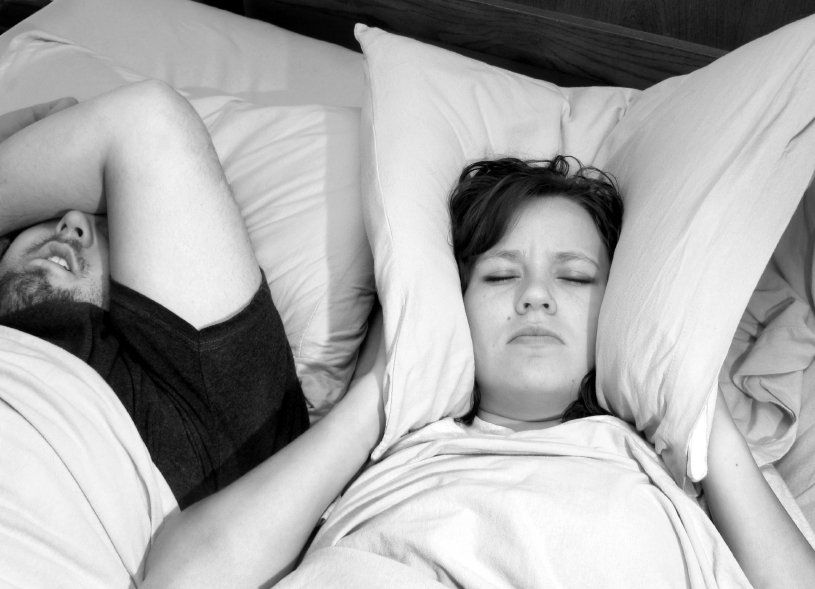
What Is Sleep Apnea?
Between 50 and 70 million Americans are living with sleeping disorders, with an estimated 22 million of these individuals suffering from sleep apnea. Sleep apnea is a sleep-related condition that causes individuals to spontaneously stop and start breathing as they sleep. Since prolonged difficulty breathing can lead to oxygen deprivation, sleep apnea is a serious medical condition that might cause other health complications if left untreated.
Sleep apnea affects a person’s respirations by causing loud breathing, periods of no breathing, and mouth-breathing. However, this condition also has a notable impact on a person’s energy levels, the quality of their sleep, and other metabolic functions such as mood and weight.
Different Types of Sleep Apnea
Some people think that all sleep apnea cases look alike, but there are actually three kinds of sleep apnea:
- Obstructive sleep apnea (OSA) is a type of sleep apnea in which relaxation of the throat muscles causes intermittent airway blockage. Tissues and muscles in the throat, such as the tongue and soft palate, expand when they are relaxed. This expansion blocks the airway and prevents a person from breathing.
- Central sleep apnea (CSA). This presents in a similar way as OSA does, since it leads someone to intermittently stop and start breathing as they sleep. However, the root source of CSA is very different, so treatment options will also be different.
- Mixed sleep apnea, which is a combination of both OSA and CSA. When someone who has mixed sleep apnea is sleeping, their cycle starts off with symptoms of central sleep apnea and ends with symptoms more akin to those of obstructive sleep apnea. Individuals with mixed sleep apnea are usually treated for the form of sleep apnea that starts off their sleep cycle.
The major difference between the first two are that central sleep apnea stems from improper brain signals that trigger the respiratory system to breathe while you are asleep, which makes it neurological in nature. CSA can result from a range of other health problems, some of which are also neurological in nature, such as Parkinson’s disease and stroke. But CSA can also develop in individuals with coronary artery disease, heart disease, or kidney failure. Obstructive sleep apnea, on the other hand, is muscular in nature since it results from weak throat and neck muscles that collapse and block the airway.
Most Common Sleep Apnea Symptoms
Sleep apnea is a serious condition that can lead to consequences such as work related or automobile accidents due to excessive daytime sleepiness. While you may never realize that you’re waking up during the night, a sleeping disorder causes your body to constantly repeat a sleep-wake-sleep pattern that deprives it of quality, rejuvenating rest.
Other signs of sleep apnea may vary, depending on whether it’s nighttime or during the day. For example, your sleep partner may notice nighttime symptoms more, especially if you’re snoring, gasping for air, or you periodically stop breathing. You may never realize there is a problem until you wake up with a headache, or you’re falling asleep on your commute home from work. A sleeping disorder can impact everything from your mood, to blood pressure, to more serious health consequences.
How do you know if you have sleep apnea? Before scheduling a sleep study or visiting a healthcare provider, perform a self-assessment to identify any of the following symptoms for sleep apnea:
Snoring — Certain types of sleeping disorders are due to a restriction of your airway, creating this noisy side-effect!
Sore or Dry Throat — As you snore, the drying effects of mouth breathing can lead to throat irritation.
Not Sleeping Through the Night — Do you consistently wake up for no reason or to make unnecessary trips to the bathroom? Do you experience excessive Daytime Sleepiness? Sleep apnea could be the cause.
Headaches — Lack of quality sleep can cause migraines and daily headaches.
Lack of Concentration — The mental fatigue of sleep deprivation can make daily activities more challenging than they should be.
Irritability — Feeling as if you’re in a bad mood, depressed, or irritable are commonly experienced by people with a sleeping disorder.
Heartburn — You may never realize just how many of your medical conditions are linked with getting a poor night’s rest!
High Blood Pressure — If you’re taking medication for hypertension or find that your blood pressure is difficult to control even with diet and exercise, your sleep could be a factor.
Is it Possible to Have Sleep Apnea Without Snoring?
Is Sleep Apnea Permanent? Can it be Cured?
Causes Of Sleep Apnea
Are you struggling to catch enough Zs? Do you find yourself waking in the middle of the night, tossing and turning? Are you frequently tired during the day? Or are your loved ones complaining about snoring? If so, you may be suffering from sleep apnea, a serious condition related to insomnia that affects as many as 22 million Americans .
By working with a sleep apnea expert, such as Dr. Phillips who has over a decade of specifically treating sleep disordered breathing with oral appliances as an alternative to CPAP therapy , you will be able to not only identify sleep apnea, but also the underlying conditions and factors causing it. From there, you will be able to identify the appropriate prevention and treatment plan.
What Causes Sleep Apnea?
Sleep apnea is caused when the muscles in the back of your throat relax. This obstructs the airway, which can then cause a wide range of factors and conditions. Effective treatment requires first identifying the cause of sleep apnea, so proper diagnosis is vital.
Sleep apnea can also result from other medical conditions, such as chronic obstructive pulmonary disease (COPD) and asthma, that obstruct the upper airways. Circulatory conditions, including diabetes mellitus and congestive heart failure, are known to be present in many people who have sleep apnea. Hormones are also thought to play a part in the development of this sleeping disorder, as menopausal women and those with polycystic ovary syndrome (PCOS) are more likely to experience sleep apnea.
Risk Factors for Sleep Apnea
While some medical conditions increase a person’s risk of sleep apnea, there are a range of other risk factors that predispose people to this condition. Some common risk factors of sleep apnea include:
- Obesity - There is substantial research supporting the link between obesity and sleep apnea. This is primarily due to the presence of excess fat around the neck and face that can constrict the airways. Studies show that around 70% of individuals with OSA are obese. Data also suggests that someone who steadily gains weight is far more likely to experience progressively more severe symptoms of OSA than someone who does not gain weight (or loses weight).
- Sleeping position - Some sleeping positions may increase your risk of sleep apnea. When you sleep on your back, for example, gravity makes your airways more collapsible and more likely to become obstructed. It is recommended that someone at risk of sleep apnea sleeps on their side, since this improves bodily circulation and reduces the likelihood of snoring. Another good option is stomach sleeping, since this allows gravity to pull down on the throat muscles and works in your favor by keeping the airways open.
- Inherited - It’s possible to inherit sleep apnea. In fact, researchers believe that genetics can contribute quite heavily to the development of sleep apnea. Studies show that 40% of a person’s risk for sleep apnea can be credited to their genetics, while the remaining 60% is due to lifestyle factors. While the exact mechanisms remain unclear, the risks of developing this condition are 50% greater for those who have first-degree relatives with sleep apnea.
- TMJ Disorders - Problems with your temporomandibular joint, including injuries and arthritis, may indicate the presence of sleep apnea. One study found that “among the 6.1% of people with high likelihood for OSA, the rate of first-onset TMD was two-fold greater relative to that of people with low likelihood for OSA.”
- Smoking - Smoking of any kind serves as an irritant to the upper respiratory system. This irritation can lead to dryness and swelling, which only worsens someone’s likelihood of having an obstructed airway. Additionally, smoking is associated with poor circulation, so the muscles in the neck and throat will not receive all the oxygen they need to function properly.
- Nasal Congestion - Someone with acute or chronic nasal congestion will experience a lot of resistance in the airway. Doctors have found that, by simulating nasal congestion, individuals demonstrated sleep symptoms such as snoring, shallow breathing, and apnea. Individuals with chronic nasal congestion are twice as likely to experience symptoms of sleep apnea.
- Alcohol - Alcohol can not only worsen cases of sleep apnea, but this substance is also known to cause apnea. Alcohol and other sedatives decrease someone’s need to breathe, which is already a concern for those with sleep apnea. This means someone who frequently drinks alcohol will experience slowed breathing and even more relaxed muscles, which both can lead to a collapsed airway.
- Hormonal Abnormalities - Individuals who do not produce enough melatonin will struggle with their sleep-wake cycles and are at a higher risk of developing sleep apnea. Studies also show that low estrogen and progesterone levels can bring about sleep apnea, since these two hormones help with muscle maintenance necessary to keep the airway intact.
Various other conditions and factors can contribute to developing sleep apnea. If left untreated, this condition can have serious health consequences. Furthermore, medical conditions such as heart disorders can be very serious. That’s why it’s important to discuss your condition with an expert so you can
get help treating your sleep apnea.
Who is Vulnerable to Sleep Apnea?
Certain groups of people are more likely to suffer from sleep apnea than others. If you at a higher risk of suffering from sleep apnea, you need to be especially careful. However, keep in mind that anyone can suffer from this condition. Anyways, let’s look at those populations most likely to suffer from sleep apnea.
Adults: Sleep apnea is more common among adults than children because the aging process can weaken the muscles of the throat and neck. Up to 60 percent of obese children may suffer from sleep apnea, since fat deposits near the neck and throat can cause airway obstructions. Postmenopausal women and those over the age of 65 are even more likely to suffer from sleep apnea due to hormonal changes that cause low tone in the neck and throat muscles. As you age, it’s important to watch for signs of this serious condition.
Men: Men are four times as likely to suffer from sleep apnea than women are. Various pathophysiological differences, including obesity rates, airway anatomy, hormones, and breathing habits are believed to play a role. Studies have demonstrated that men have a larger airway than women, meaning those muscles are more susceptible to collapse during sleep. Obesity is far more common in men (34%) than in women (27%), which is another reason they are more likely to develop sleep apnea. There is a connection between healthy levels of female hormones (estrogen and progesterone) and maintenance of the airway, making men even more so at risk. Males also have a larger airway and higher lung volume, which makes them more likely to have sleep apnea.
Smokers: Those who smoke are more likely to suffer from sleep apnea. In one study, 35 percent of those diagnosed with sleep apnea were smokers. This compares to just 18% in an unmatched group of patients without sleep apnea. As we mentioned before, smoking on its own impairs circulation, decreases oxygen saturation, and increases daytime sleepiness. Since these are all sleep disorder symptoms, individuals who smoke are likely to experience the onset of these symptoms or worsened symptoms if they already have sleep apnea.
Obesity: Studies have found that a 10 percent increase in body weight correlated with a 30 percent increase in the risk of sleep apnea. As many as 90 percent of severely obese individuals suffer from sleep apnea. Obesity leads to an accumulation of fat in the throat and neck region, which only promotes collapse of the airway. But the fat in this area also leads to oxygen loss and decreased muscle activity, which is the perfect storm for apnea.
Heavy Drinkers: Those who consume large quantities of alcohol are 25 percent more likely to suffer from sleep apnea. Alcohol is a sedative that relaxes the muscles and makes them far more likely to collapse. Spirits also interrupt someone’s sleep-wake cycles, which are already disrupted in sleep apnea.
Short, Thick Necked Individuals: Individuals who have short, thick necks are more likely to suffer from both loud snoring and sleep apnea. This is because thicker muscles in this area make less room for the airway, which then becomes constricted and causes someone difficulty when breathing.
Neuromuscular Disease Survivors: If you or your loved one has suffered from a stroke or similar neuromuscular disease, he or she will be more likely to suffer from sleep apnea as well. Strokes, traumatic brain injuries, multiple sclerosis, and other conditions can permanently weaken (and, in some instances, paralyze) the muscles of the neck and jaw. This causes trouble breathing, swallowing, and even sometimes talking. Individuals who have suffered a neck or jaw injury will also have an increased risk of sleep apnea. While preventing sleep apnea is difficult, addressing underlying factors and completing certain jaw exercises can lower your risks.
Next Steps: If you are concerned you might have sleep apnea, your first step is to get a sleep study and a consutation with a sleep physican. If your sleep apnea is diagnosed as mild or moderate, or you cannot tolerate a CPAP at any level of sleep apnea, a board-certified sleep dentist like Dr. Katherine Phillips may have solutions that can help.
-2700x842-1920w.png)




